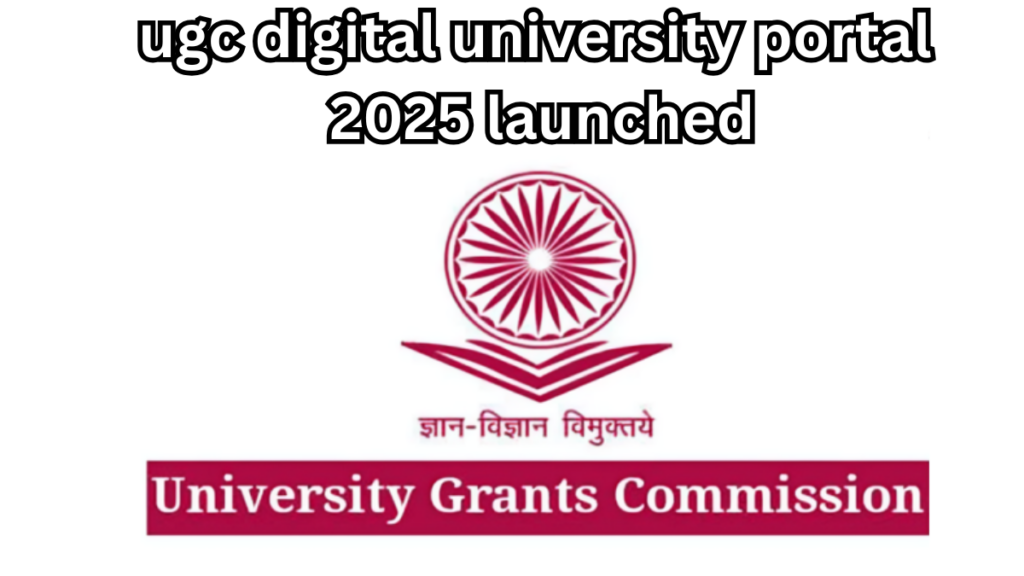The University Grants Commission (UGC) has officially confirmed a major shift in India’s higher education landscape. Under the National Education Policy (NEP) 2020 framework, the UGC 4 year degree rule 2025 is now in effect, making a four-year undergraduate (UG) degree the new eligibility requirement for postgraduate (PG) admissions across Indian universities.
This change aims to align India’s academic structure with global standards, providing greater flexibility, multidisciplinary exposure, and academic depth to students. The UGC 4 year degree rule 2025 is not just a policy reform—it’s a transformation in how education is structured for the future.
By adopting this policy, universities are enabling students to pursue more integrated learning experiences, preparing them for both higher studies and the competitive job market. The pg admission rules india have officially changed, and this is what students and academic institutions must adapt to moving forward.

Table of Contents
Key Details of the UGC 4-Year Degree Rule 2025

With the new UGC 4 year degree rule 2025, students must now complete a four-year UG program in order to be eligible for direct admission to a Master’s program. This replaces the earlier model where a three-year degree sufficed for most PG courses.
Key highlights of the rule include:
-
4-year UG degree is now the new standard for PG admissions
-
Students with a 3-year degree must undergo a 1-year bridge course before applying for PG
-
The rule is applicable for all central, state, and deemed universities from the 2025–26 academic session
-
UGC nep implementation is the foundation of this change, ensuring a uniform national academic framework
This new structure encourages students to engage in multidisciplinary studies, research-based learning, and exit options at various stages of their UG course.
What the New PG Admission Rules Mean for Students
The pg admission rules india have significantly evolved with the NEP. Under the new system, only those completing a four-year Honours degree can seamlessly enter postgraduate programs. Others will require additional qualifications.
Here’s a comparison:
UG Program Type |
PG Admission Status |
|---|---|
4-Year Honours UG |
Eligible directly |
3-Year UG Program |
Must complete 1-year bridge |
Integrated UG-PG |
No change |
The goal of the UGC 4 year degree rule 2025 is to reduce academic pressure while increasing the quality of learning. This shift also promotes mobility across disciplines and flexibility in curriculum choices.
Implementation of UGC NEP 2025 Across Universities
The UGC nep implementation is rolling out in phases across Indian universities. Institutions have been instructed to redesign their UG programs into four-year formats with multiple entry and exit points, credit-based systems, and internships or research projects in the final year.
Colleges will follow the updated structure with clear distinctions:
-
1st year: Foundational courses
-
2nd year: Major/minor choices
-
3rd year: Specialization with internships
-
4th year: Research or project-based work (for Honours degree)
The UGC 4 year degree rule 2025 reflects the NEP’s commitment to student-centric learning, skill development, and international compatibility.
Benefits of the New 4-Year UG Degree Structure
While the change may seem sudden, there are numerous benefits associated with the UGC 4 year degree rule 2025 for both students and educational institutions.
-
Streamlined academic pathway to PG without repetition
-
Increased global acceptance of Indian degrees
-
More research opportunities in UG, preparing students for M.Phil or PhD
-
Flexible curriculum to suit individual interests
-
Credits earned can be stored in Academic Bank of Credits (ABC)
This change will also support the entry of Indian students into foreign universities that require a four-year UG degree, promoting international academic mobility under the UGC nep implementation.
Colleges and Students Must Act Now
Universities have already begun updating their course structures to comply with the new pg admission rules india. Students currently in 3-year UG programs are advised to consult with their institutions about bridge course options.
College authorities will:
-
Update UG course durations from 3 to 4 years
-
Redesign syllabi for credit-based electives and project work
-
Offer guidance to current students on eligibility under the new rule
The UGC 4 year degree rule 2025 is being widely adopted and must be treated as the new standard for academic planning in India.
FAQs
Is the 4-year UG degree compulsory for PG admission in 2025?
Yes, under the UGC 4 year degree rule 2025, only students with a four-year undergraduate Honours degree can apply for postgraduate courses directly.
What happens to students with a 3-year degree?
Students with a 3-year UG degree will be required to complete a 1-year bridge program to meet the pg admission rules india.
Is this rule applicable to all universities?
Yes, the rule applies to central, state, and deemed universities as part of the UGC nep implementation starting from the 2025 academic session.
What are the advantages of a 4-year degree?
A 4-year UG degree offers research exposure, flexibility in learning, and direct entry into PG programs under the UGC 4 year degree rule 2025.
Will the 4-year degree be accepted internationally?
Yes, the new degree structure aligns Indian higher education with global standards, improving recognition abroad under the UGC nep implementation.
Are integrated PG programs affected?
No, integrated UG-PG programs will continue as before and are not affected by the pg admission rules india.
Click here to know more.










